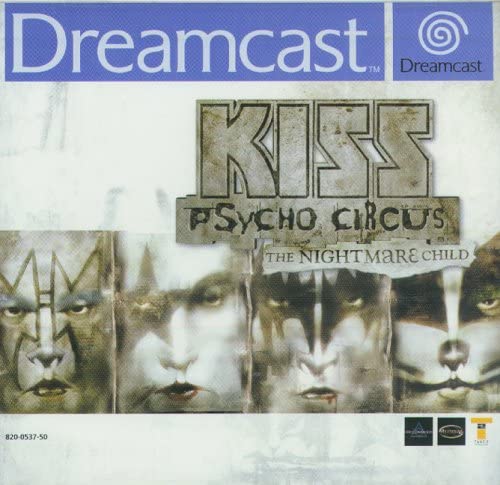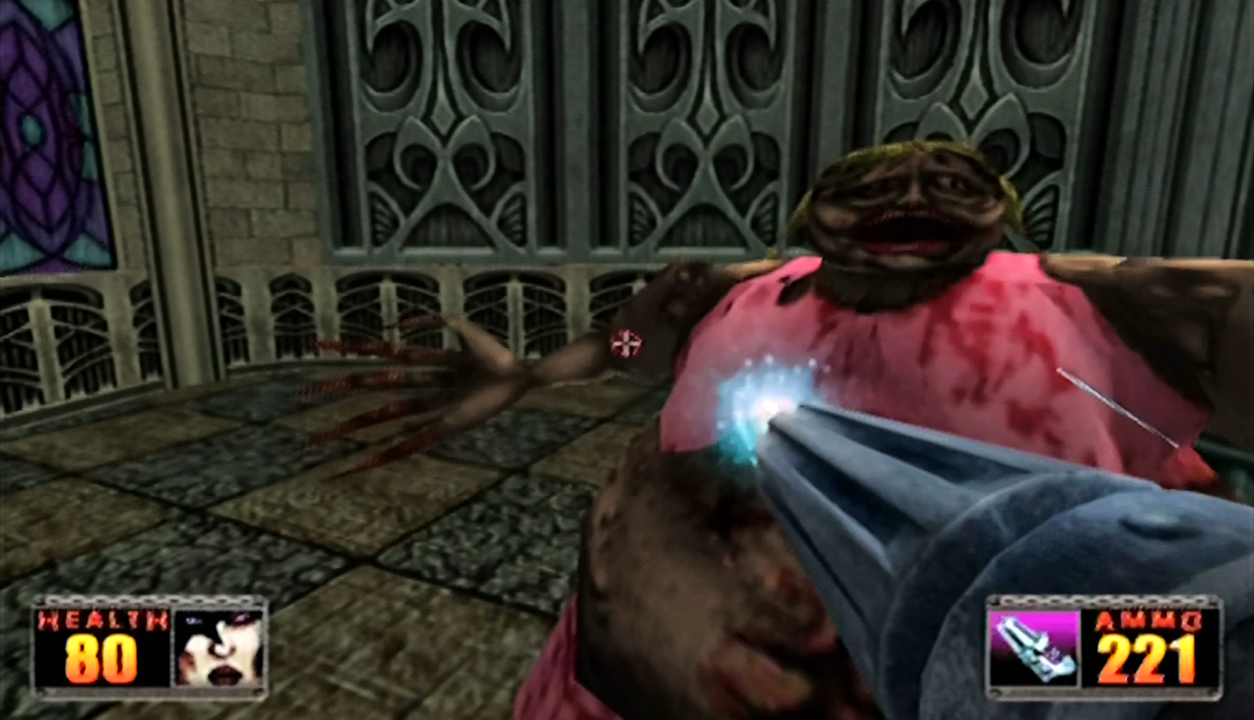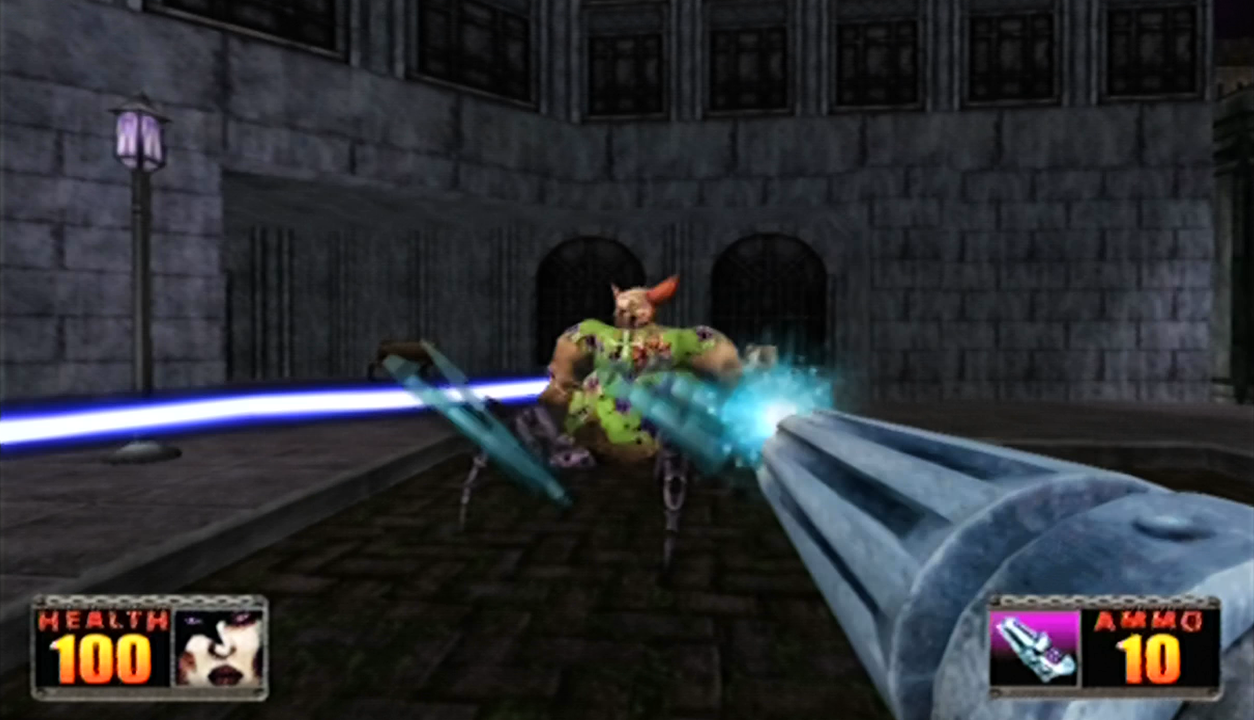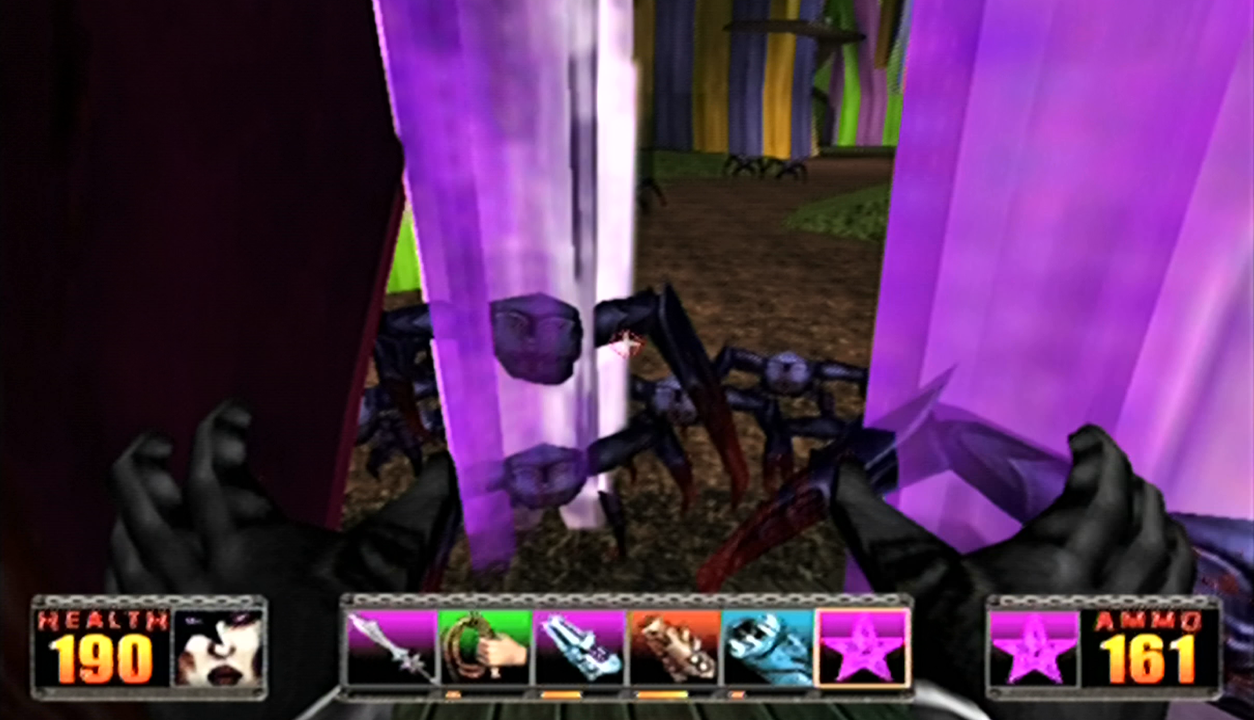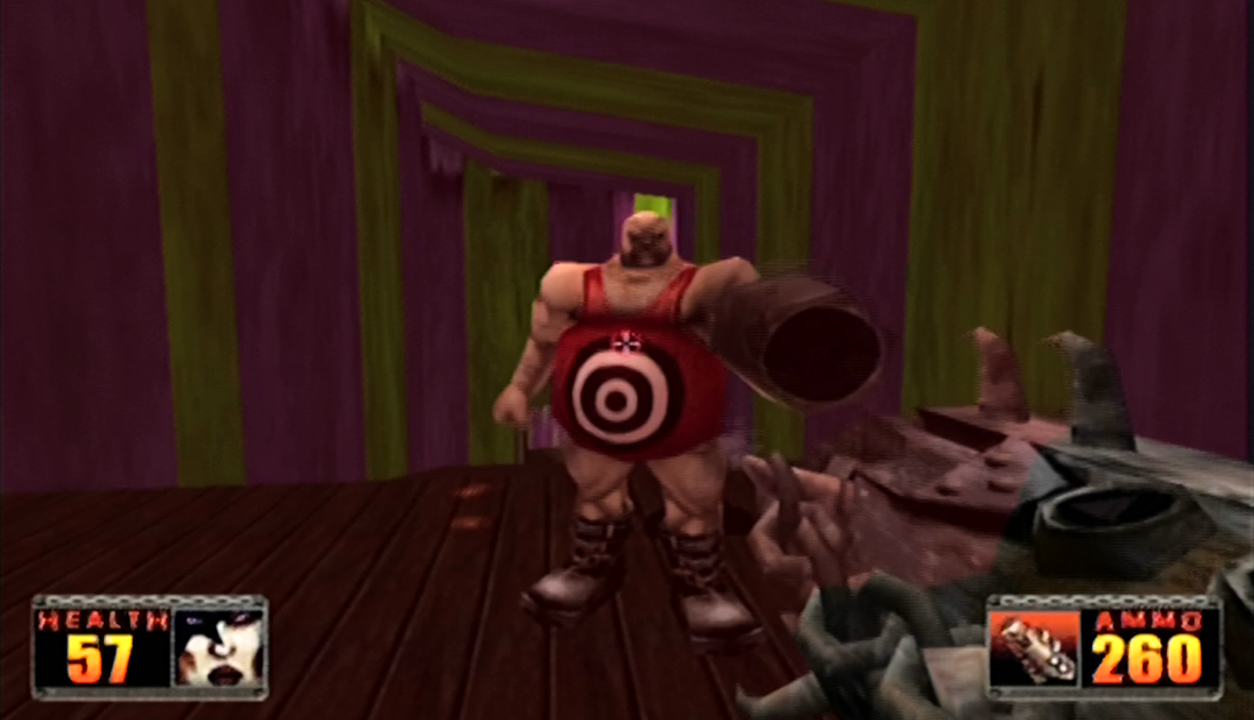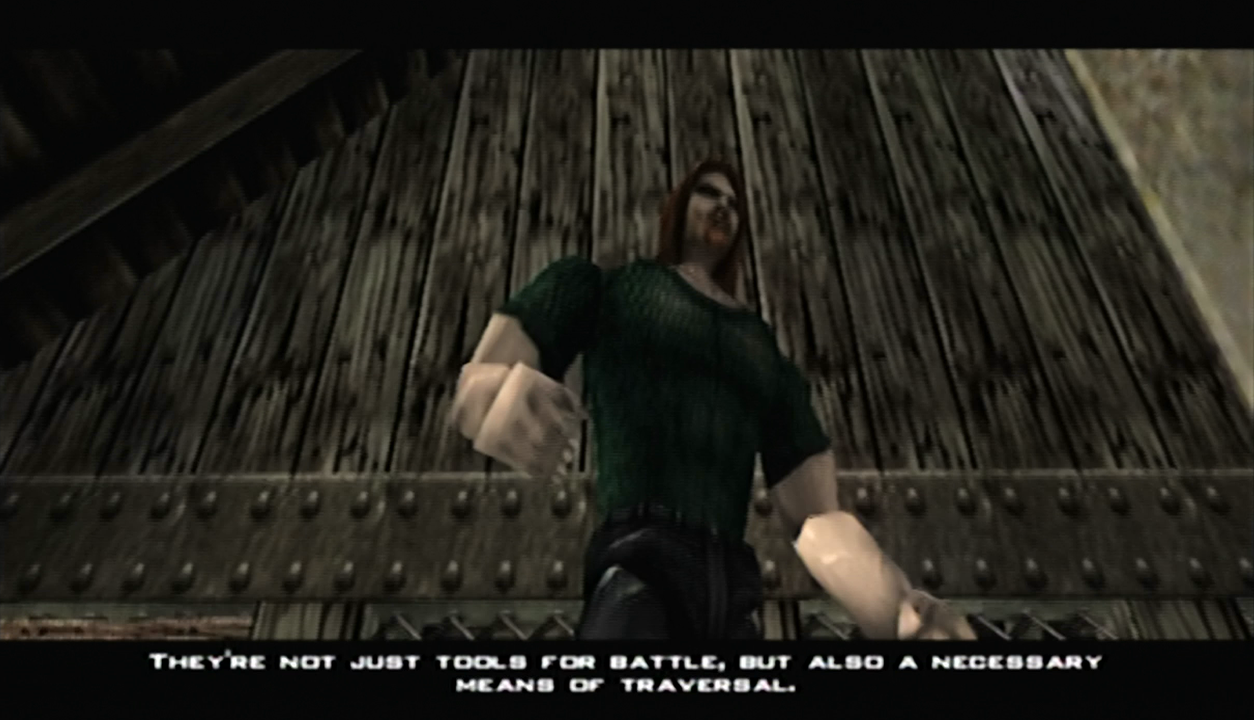KISS: PSCYHO CIRCUS: THE NIGHTMARE CHILD (DC)
Only during the late nineties and early 2000s could you find such a bizarre, unorthodox licensed game as Kiss: Psycho Circus: The Nightmare Child. A game based on a comic book, which was in turn inspired by the extravagant, veteran rock band, it seems almost like a work of fantasy upon first inspection. After launching on PC in 2000, Dreamcast owners would be treated to their own version some months later, despite the format seeing a decline in popularity with the imminent arrival of rival consoles. Sadly, for developer Tremor Entertainment, their porting efforts would prove less glam rock, and more disjointed riff, with a lacklustre FPS made worse by noticeable technical failings, a poorly told story and a genuine lack of memorable moments. Not even some cool weapons and aesthetics can save it.
Todd McFarlane’s Psycho Circus would expand on the personas of each Kiss member, as elders who defend the realms from evil forces. The Nightmare Child focuses on a tribute band who, after a hellacious night, begin searching for pieces of armour that transforms them into the Four-Who-Are-One. The story could have proven interesting, with plenty of intriguing lore potential here. But sadly, it is poorly articulated with a severe lack of cut-scenes, no spoken dialogue and lengthy text diatribes that add little substance. It’s a pity, because you could imagine with more effort that the narrative could have proven a key point – instead, it ends up striking a bum note. It leaves both the story and the world feel like a waste.
Big weapons and wacky themes aren't enough to disguise The Nightmare Child's mediocre gameplay
The Nightmare Child spreads its shooting levels across four key acts, each seeing you play as one of the four members of the group. It begins a cycle that repeats every time you change act: you search for your unique melee weapon, kill dozens of creatures while seeking the rest of the armour pieces and then escape a final level, rinse and repeat. It gets old pretty quickly, causing a stop/start sensation every time you make progress. While there is a good deal of enemy variety, most sway between simplistic to frustrating. While the endless spawners spew weak Headless and hellhounds, some larger foes such as a rotund acrobat with a cannon arm can loop you in hit animations, which proves frustrating. It ends up a slog, as although you can respawn infinitely after dying, the sheer number of cheap enemies and moments such as awkward first-person platforming will see you sent back dozens of times in some levels.
It doesn’t help that your roster of weapons is near identical between each, leaving the shooting very repetitive even when you change characters. While the shotgun packs more punch than a cannon, the whip feels lame to use and the machine gun feels underpowered. You get plentiful ammo for every gun, but most don’t feel that great to use. The only blessing is that each comes with two unique weapons: the aforementioned melee strike and a superpowered gun that has rare ammo but kills most foes instantly. Whether you’re summoning a black hole or shooting lava with an actual dragon, it spawns some of the best moments of this mostly rote experience that lacks much in the way of memorable moments or fights, with only a single boss fight at the game’s end and little variation between enemies.
It doesn’t help that your roster of weapons is near identical between each, leaving the shooting very repetitive even when you change characters. While the shotgun packs more punch than a cannon, the whip feels lame to use and the machine gun feels underpowered. You get plentiful ammo for every gun, but most don’t feel that great to use. The only blessing is that each comes with two unique weapons: the aforementioned melee strike and a superpowered gun that has rare ammo but kills most foes instantly. Whether you’re summoning a black hole or shooting lava with an actual dragon, it spawns some of the best moments of this mostly rote experience that lacks much in the way of memorable moments or fights, with only a single boss fight at the game’s end and little variation between enemies.
It ends up feeling like a game of give and take. The controls (despite the Dreamcast’s lack of a second analogue stick) feel solid enough, but the lack of mouse-and-keyboard feels odd when ports like Quake III and Unreal Tournament boasted this. The campaign is lengthy and features three difficulties which all have a good dose of challenge which increases between, but the multiplayer component featured in the PC port was cut. The style of the comic does translate into some grim scenery, moody lighting and atmospheric moments which combined with some slick music does feel engrossing. But then, when the action gets too chaotic on screen, slowdown can become severe and leaves inputs feeling unresponsive. For every high moment, something saps you back down to reality. Amongst a crop of superior FPSs on the console, The Nightmare Child feels inadequate.
Despite a number of concessions made to bring this to Dreamcast, most critics at the time didn’t crucify it as much as other games that committed similar offences. One could argue that the looming launch of other consoles proved a distraction, but ultimately, it’s likely because Kiss Psycho Circus: The Nightmare Child was hardly a belter on PC, even with everything intact. This version proves an ugly, inferior conversion. Repetitive beyond belief, narratively underwhelming and a chore to play, this FPS sits nearer the bottom of the Dreamcast’s pile. Kiss fans will bemoan the distinct lack of music from the band, while shooter fans will notice the shortage of quality.
|
|
VERDICT
"Repetitive beyond belief, narratively underwhelming and a chore to play... Kiss fans will bemoan the distinct lack of music from the band, while shooter fans will notice the shortage of quality." OVERALL: 4/10 |
